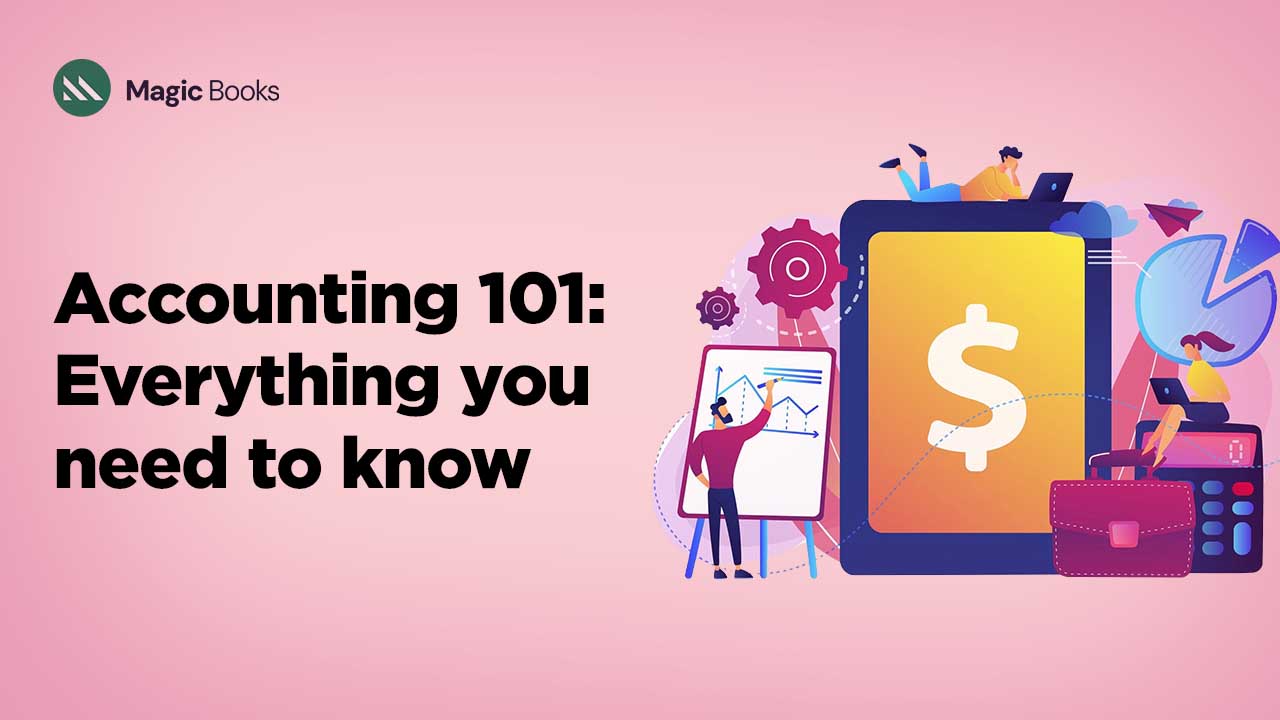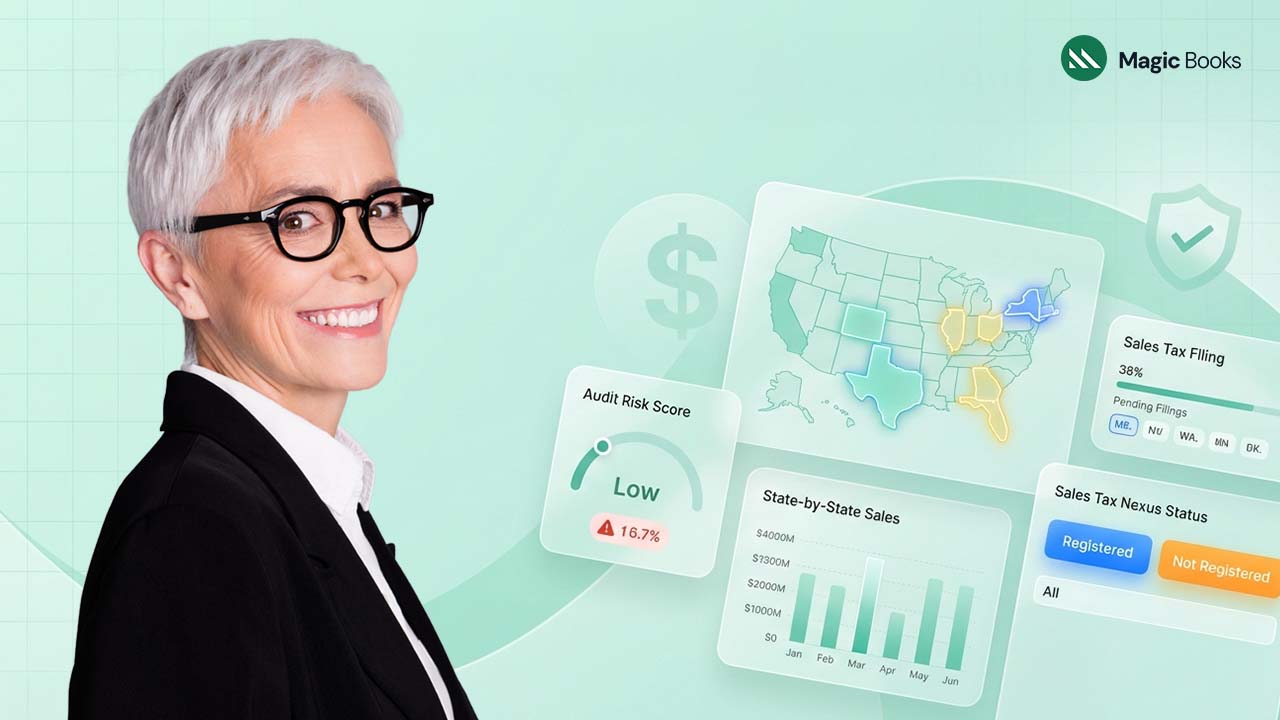Trust us when we say this, accounting can be the least fun part of running a small business. Most small business owners usually find themselves in the whirlwind of being understaffed and in most cases underfunded as well. This means that in most cases they really have to look at several departments of the business which also includes accounting. As a small business owner, you know that so many things are going on in business and usually small businesses are fast-paced, keeping track of it all can become really difficult and when it comes to accounting such delays in record keeping can have devastating consequences for the business. Typically, small business owners don’t have a strong background in accounting, yet they still need help from an experienced professional to keep their finances on track, or in this case they can always rely on our blogs for educational content.
Despite its legendary reputation in the financial world, accounting remains one of the most important ways to keep a business financially healthy.
So, we are here to help you out. All you have to do is implement these systems and best practices for keeping track of the expenditures and revenues. This is the key to managing cash flow. Now, let’s start with setting up the accounting for small businesses
The Setup:
As you know, accounting is the most important part of running any business because it helps owners keep track of business-related expenses, liabilities, assets, income, and other things. This also helps companies prepare their tax filings.
Lets set the proper foundation, which includes 4 key activities:
1: Opening a small business bank account: This allows you to separate business and personal spending which can always be helpful to file taxes if you are looking to deduct eligible expenses (Which we know you will). Here is the checklist of things you need to have to open the business account:
a) EIN also known as Employer Identification Number or a Social Security number if you operate as a sole proprietor.
b) Business formation documents
c) Ownership agreements
d) Business license, if the state you wanna do business requires one to do.
Please remember that you need at least a minimum opening deposit if the bank requires one which can totally depend on the type of business account and whether you are opening the account at a traditional bank or an online bank.
On to the next step folks!
2: Choose an Accounting Method: This one, we can’t stress this enough, is the most important decision you have to take. The IRS allows you to choose between two options from: Cash and Accrual. Here is what they are:
a) Accrual: In this method, you would report income in the year that you earn it, whether you have received it or not.
b) Cash Method: In this method, you report income in the year that you receive it and deduct expenses in the year they are paid.
Please note that if you select one accounting method and then change your mind or circumstances and decide to change the accounting method after filing your taxes, you would need to complete IRS Form 3115 to formally do so.
3: Setting up a Chart of Accounts: Let us define what it is before we tell you what to do. A chart of accounts is a list of all accounts available for recording the transactions in the accounting software program if you use one or a general ledger in case there is no software. Now, to create a chart, you need to start by organizing your accounts into specific categories and then further breaking your organization down into relevant sub-accounts. You can build your own system if you want or follow a template that works for you.
On to the final step folks
4: Understand the Fiscal year: Do you know what it is? If not, let us tell you. A fiscal year is 12 consecutive months for which accounting activity is recorded. Did you know that small business owners can decide when their fiscal year begins and ends but the only rule is that it must be 12 consecutive months. For example, if you want to start your fiscal year by May 1st then it ends on April 30 of the following calendar year. You can go with the standard calendar year for the fiscal year. Choose what works for your business because there are always plenty of options for you.
Questions to Ask Before Selecting Your Accounting Solution:
A reliable, effective accounting system can be a real liberator, allowing you to focus on more important business functions. With these questions in mind, as you search for an accounting solution for your company, you will be better prepared to make the right decision for your business:
1: What is my company size?
2: What is the best accounting technology for my company?
3: Am I confident in my understanding of basic accounting?
4: Is my cash flow available to invest regularly in accounting expenses?
5: How comfortable am I sharing proprietary business data with someone or an accounting service?
6: Am I able to consistently enter data every day with my staff and/or myself?
7: Does my business involve any complicated tax situation that might be audited?
8: Do business peers in my industry find one approach more helpful than any other?
9: Are there compatibility concerns to account for with other technological processes that are frequent, such as payroll?.
We have that sorted out, it’s time to “speak the accounting language”
Accounting Terms and Metrics to Know:
The accounting system is full of terminologies and jargon that often only makes sense to other accountants or business owners who usually know a thing or two about accounting. However, these terms and concepts are really important to grasp because they’ll be used frequently when you take up the accounting task or coordinate with accountants.
Here are some terminologies you need to know:
- 1: Accounts Receivable: Revenue which the business is entitled to from other businesses.
- 2: Equity: The specific portion of a publicly traded company that is owned by its shareholders.
- 3: Revenue: Income received by the business they sell or through subscription-based products they have.
- 4: Margin: It’s the difference between the amount of revenue received by a business and the total profit that the business usually keeps.
- 5: Accounts Payable: Debts that a business owes to suppliers, contractors, or other companies.
Now that you know the basic terminologies, it’s really important to have your reporting sorted because you really need a dashboard view of your finances.
Reporting side of Accounting:
The right financial reports can help small business owners gain a better perspective for the amount of money coming into a company, the amount you are spending, and your overall revenue bottom line. An experienced small business accountant will understand which financial reports are best suited to a particular business and how to run those reports.
Some of the more commonly used financial reports among small businesses include:
- Accounts Payable/Receivable Reports: Running regular accounts payable and accounts receivable reports is essential to track what money the business is still owed and what payments still need to be made.
- Balance Sheets and General Ledger: This kind of financial report tracks a company’s assets versus its debts at any given time. Just like a profit and loss statement, this type of report can help a company get a better perspective on its financial health, its assets, and its liabilities. A balance sheet may also come in handy for a business that is looking to take out an additional loan for any reason.
- A profit and loss statement: This is a report of all business debits and credits by a given time. This kind of report is useful in taking a broad look at the health of a company.
- Cash Flow Statements: Businesses must always be aware of the cash on hand at any given time, particularly when purchasing supplies and paying employees. A cash flow statement will spell this out for a business just in terms of its money inflows and outflows, so the business owner can spend his money well.
How Does Accounting Help Small Businesses?
As you know, with what we have said, poor financial accounting is one of the main reasons small businesses fail, especially in the first year of the business. We are not trying to scare you but since small businesses can barely afford a pen, much less a salary, or other resources, correct financial record-keeping provides information to develop and grow them.
To a small business owner, accounting is very essential as explained by the following:
1. Track Cash Flows
Keeping the record correctly and placing a perfect financial strategy in practice proves to be the best way to monitor business cash flow patterns. A small business owner who can prepare financial reports can understand the money flowing into and out of the organization and will hence be in a better position to make wise business decisions in the future.
2. Be Familiar with Fixed and Variable Costs
Cost accounting accounts for fixed cost and variable costs, analyze them, and produces useful reports that will help a business proprietor better determine how much a project or product production will cost. Therefore, they make better financial decisions and create an exact budget, which in turn leaves the business with higher net profit margins and financial stability during production.
3. Better Understanding of Your Company’s Health
Accounting gives you an appreciation of the business’s financial position, especially when you learn how to prepare financial statements and read balance sheets, income statements, and cash flow statements. Once you know how your business is performing, you will be in a better place to make choices.
4. Avoid Fraud and Theft
Accurate accounting detects and prevents fraud and theft by customers, employees, and suppliers by creating a system of checks and balances to verify transactions. It builds accountability by making it easier to trace any transaction. Effective internal controls are a key element of a successful accounting system.
5. Face Audits With Head Held High
When you understand business finance and dealings, you are much better prepared in case of audits. An accountant can help ensure that your business is compliant with all tax obligations and keep you organized with detailed records, so you won’t have anything to worry about if the IRS requests more information.
6. Ability to Attract More Funding
Bankers are more confident when dealing with company owners who have a handle on their company finances and understand the financial implications of their decisions. The overall financial health of your organization can determine future loans, which, in turn, may allow you to purchase new machinery or invest in new technology.
It requires a lot of specialized knowledge to work in small business accounting, but it is also very fulfilling-especially when you have the opportunity to grow and mature a business from ground zero. Small business accounting cannot be overemphasized; whether one is setting up a completely new business or has some prior experience, formulating a good accounting plan helps track and sustain the entity’s financial health. If you take the suggestions made above to heart, you’ll probably devote some of your time to other important aspects of your business.



